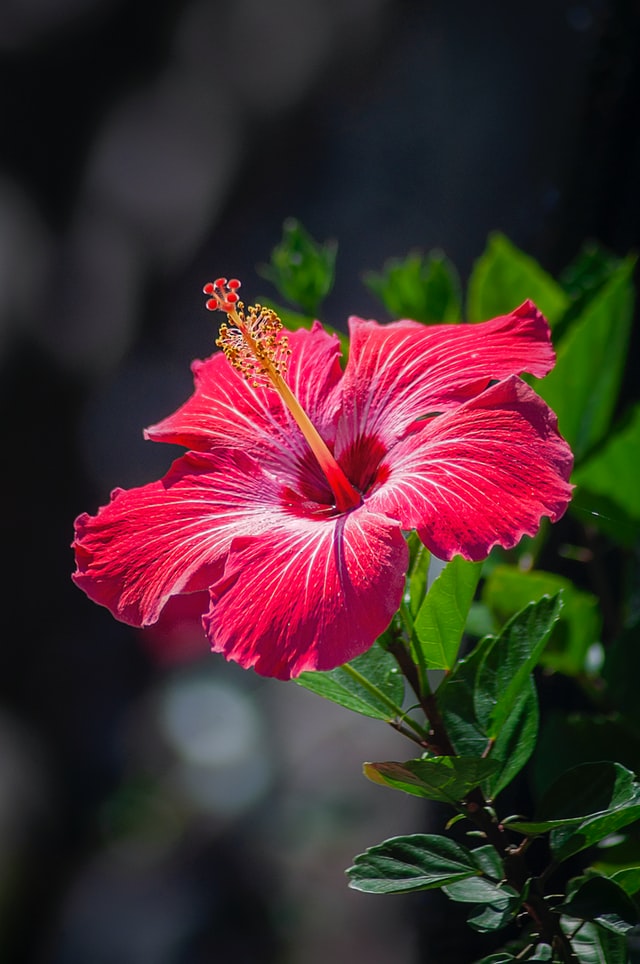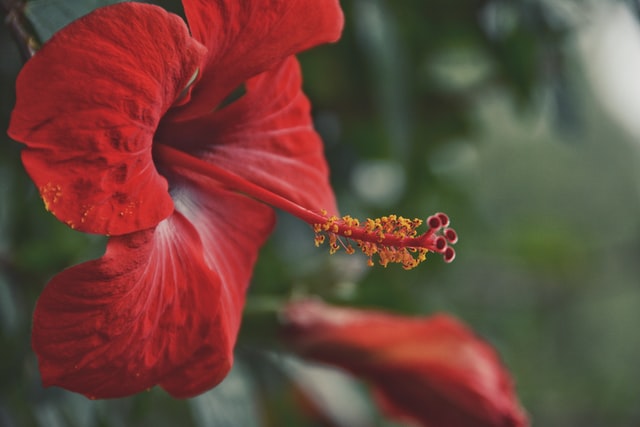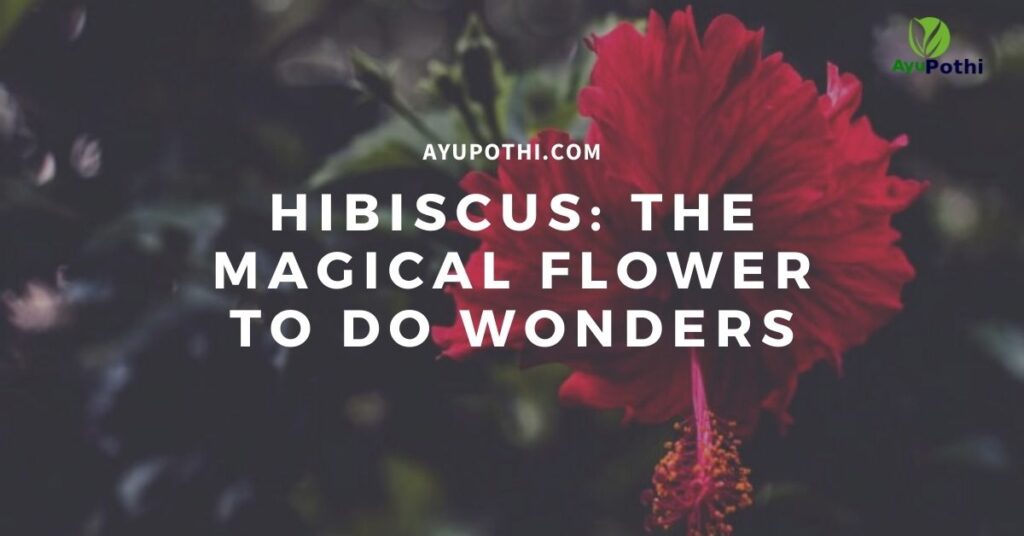Hibiscus is a star of the flowering plant because of its various qualities and known for its large variety of colourful flowers. This flower not only used to decorate the home or garden but they also have medicinally used from ancient times. The Hibiscus flower came in various colors like red, yellow, white, pink, etc. but the most popular variety is the red flower. They cultivated for medical, dietary supplements or to use in beauty remedies. Hibiscus or Gudhal (in Ayurveda) is commonly known as China rose.
Hibiscus Flower For Body
According to Ayurveda, Hibiscus has a sweet and astringent taste and a cooling and energetic effect on the body. According to Indian culture, the flower is associated with the lord Ganesha and it resides in the first and second chakras of the body (in the human body there are 7 chakras which related to different body organs), 1, 2 chakras is related to kidney and reproductive organs- both areas where its benefits shine.
Ayurveda also uses hibiscus flower to support heart, circulatory system, purify the blood, uplift the heart and promote a clear, glowing complexion.
Not only in Ayurveda but it’s also used by different cultures as a remedy. Egyptian used hibiscus tea to lower body temperature, treat heart and nerve disease. In Africa, tea is used to treat constipation, cancer, liver disease and the pulp made of leaves used to heal the wounds. In Iran, drinking sour tea is common treatment for high blood pressure.
Today, hibiscus again gains its popularity in times of pandemic because people stay at home because of the lockdown imposed by the government to stop the spread of the virus. Then they start using the home remedies to take care of their skin or hair that leads them to hibiscus and then further modern studies show is potential to reduce high blood pressure.
It is consumed in various forms like:
- Hibiscus Capsules
- Hibiscus Syrup
- Hibiscus Powder
- Hibiscus Tea
- Hibiscus fresh juice

Hibiscus Flower as Tea
Help in improving sleep. Drinking hibiscus tea reduces anxiety by creating relaxed sensation in the mind and body. Lower the level of bad cholesterol, thereby reduce the risk of heart disease. It’s also protects cardiac muscle cells with its antioxidant property.
According to Ayurveda, headache is caused primarily by Vata and Pitta imbalance. Use of hibiscus tea or powder helps in Pitta type of headache due to its Pitta balancing property. Modern Science study shows that it might have an effect on metabolism, prevent obesity and fat build up in the liver. But we need more research to determine the safe dosage of it’s for pregnant women or children.
Allergy alert: People, who have hypersensitive skin, apply paste or juice to small area of your skin to test the possible allergic reaction.
Hibiscus Flower for Skin and Hair
For centuries, the flower has the incredible properties that fulfil the need of our skin and hair.
For skin care
Anti-aging Property: It comes with anti-ageing properties which bring firmness and reduce wrinkles, prevent the early signs of ageing naturally. It has a mild exfoliating effect which removes dead cells.
Good for acne: It has cooling effect and healing properties which reduce the swelling around acne and helps in the healing of acne scar.
Sunburn: Applying the paste of hibiscus leaves gives the cooling effect and reduces burning sensation.
Skin moisturiser: The oil present in the flower keep the skin oil and moisture balanced.
Face Mask for glowing skin: Commonly used method, in which flower powder is used and some yogurt/aloe Vera gel/ water and mix to make a paste and apply this on face and neck and leave it till it dries and then wash it off with warm water.
For Hair Care
Hibiscus packed with flavonoids, fatty acids and other pigments that do wonders for hairs from strengthening to reducing dullness and split ends. It’s particularly known for its hair growth abilities, and commonly used in the form of hair oil, shampoos, and hair masks.
Stimulates hair growth: Presence of amino acid which produce keratin which is the nutrient for hair growth. Helps to control hair fall and promote hair growth by providing nourishment to the scalp. Due to its cold nature also prevents premature greying of hair.
For dandruff and itchy scalp: It acts as astringent and reduces the oil-producing glands. The use of hibiscus leaves helps in balancing the pH level and provides a cooling effect.
For hair nourishment: The oil made of the hibiscus flower rejuvenates the scalp and promotes hair growth. The oil provides nourishment and its message improves blood circulation.
Hair Mask for strong hair: Grind hibiscus leaves and flowers to make a paste and add a cup of yogurt and apply this on your hair and wash off with lukewarm water and shampoo.

Hibiscus is a powerful ingredient for your body, skin, and hair that helps in curing a lot of problems without causing any harmful side effects. But, we have to be more careful of the form in which we are taking it and the amount of it. Then again who could have thought that this flower which is placed in our garden or neighborhood will turn out to be a magical flower which we only plant for the decoration of our home garden?


